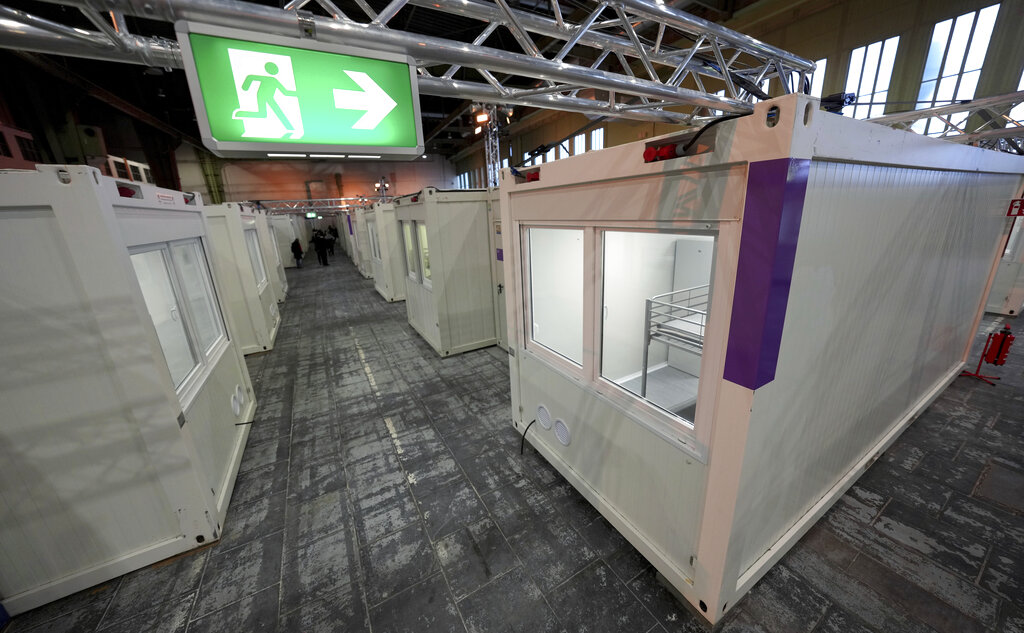The German left is seeking to reform the quota system for distributing refugees within Germany, as Berlin is running out of space for asylum seekers. However, the less overburdened federal states want no part of such a scheme.
In an effort to promote “welcome culture” to immigrants, hundreds of German cities and towns have signed a pledge over the years to take in refugees under the motto, “We have space.” However, cities like Berlin, which was one of the main drivers of such efforts, are now claiming they are running out of space.
In 2022, 1.2 million migrants arrived in the country, a record. Left-wing politicians are now pointing to the cities and states that have tried to keep refugee intake to a minimum, demanding that these areas of the country begin to take in more people.
[pp id=54937]
Berlin, Hamburg, and Bremen, the three city-states in Germany perhaps most enthusiastic about promoting mass immigration, are now also the main promoters of making it easier for asylum seekers to change their place of residence in Germany to reduce overcrowding.
Most German states rejecting new migrants
The migrant redistribution scheme is also coming at the same time as a push from the federal government for even more migration, despite a majority of Germans saying they have had enough of mass immigration.
As Remix News previously reported, 12 out of 16 German states announced they were refusing to accept any new refugees in October of 2022, with the states indicating that social services, housing, and educational facilities were extremely overburdened.
The idea is not being received well in all corners of Germany. Politicians and critics argue that these city-states got exactly what they asked for, and now that they are unhappy with the result, they want to foist the problems off onto other areas of the country.
Germany’s strict distribution system
Berlin’s Left Party social affairs senator, Katja Kipping, who is also a far-leftist and likes to use the terms “diversity” and “openness to the world,” says “there is simply too little space in city-states to accommodate the growing number of asylum seekers. The current system is inflexible.”
She says that moving migrants between states is administratively very difficult.
[pp id=57346]
According to regional Berlin broadcaster RBB, 85,000 people applied for asylum in Berlin alone last year, 46,000 of whom were granted it. Of this number, only 20,000 applied to the job center, according to Berlin statistics.
Germany has already struggled with integrating its current migrant population, and its social system is now buckling under pressure after the latest massive wave of migrants arrived in 2022.
Germany is governed by a relatively long-established system that is rather inflexible.
According to Hungarian news outlet Mandiner, “The so-called ‘Königstein Key’ was drawn up by the leaders of the West German federal states back in 1949, and its original purpose was to determine the amounts that each state should contribute to the scientific projects of the Federal Republic of Germany. Two-thirds of the quota is calculated on the basis of the tax revenue of the states and one-third on the basis of population. Thus, the quota for Hamburg, with its relatively small surface area but high economic power, may be higher than that for Mecklenburg-Western Pomerania, for example.”
Majority of states oppose reform
The other states in Germany, on the other hand, have so far shown little willingness to reform, which is understandable: Beyond morality and the need to help those in trouble, no one really wants more refugees than there are now in their own neighborhood,” Joachim Herrmann, Bavaria’s Christian Social interior minister, told German newspaper Die Welt.
“Hamburg’s Mayor Tschentscher should rather shake up his party (SPD) colleagues to immediately and urgently change the federal government’s policy and not attract more migrants here,” he responded.
[pp id=18248]
With illegal immigration once again becoming an increasingly serious problem in parallel with the wave of refugees from Ukraine, many states, such as North Rhine-Westphalia and Saxony, are no longer accepting new asylum seekers from other states. They argue that their reception capacities are full.
The federal government, however, has no plans to change its immigration policy for the time being and is instead looking to bring in millions more people, even as the population hits a record 84 million.
Instead, Social Democrat Interior Minister Nancy Faeser, known for her far-left links, is working with her portfolio on reforming German asylum and citizenship law. The new system would make it easier for citizens of third countries to immigrate to Germany and would also make it easier to obtain German citizenship.






